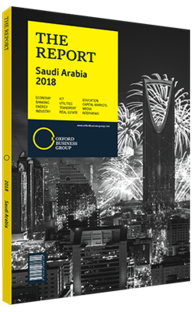Sarah Al Suhaimi, Chair, Saudi Stock Exchange (Tadawul); and CEO, NCB Capital: Interview

Interview: Sarah Al Suhaimi
What macroeconomic scenarios have the potential to impact the Tadawul’s performance in the future?
SARAH AL SUHAIMI: Since 2015 lower oil prices have slowed economic growth, which was to be expected given that oil revenues play a significant role in the Kingdom’s budget. The Kingdom’s leadership responded to this challenge by committing to economic diversification with the launch of Vision 2030 and the National Transformation Programme 2020. Despite the unprecedented level of detail, transparency, and commitment to accountability, the plans were initially received with scepticism in some quarters. As the reform commitment has translated into clear action and policies, however, stakeholders increasingly realise that the Saudi economy will be going through a historic change and are starting to mobilise their resources to capture Vision 2030 opportunities. This change will drive a multi-decade expansion of the Kingdom’s capital markets.
The macroeconomic outlook for 2018, together with Saudi Arabia’s low debt-to-GDP ratio, allows for an expansionary fiscal policy, which will boost short-to medium-term performance. The extension of the Organisation of the Petroleum Exporting Countries oil output agreement has created a budgetary cushion, and recent Federal Reserve rate hikes in the US are positively impacting net interest margins in our local banking sector. The reform of capital markets plays a major role within Vision 2030 and should lead to the inclusion of the Tadawul in emerging market (EM) indices. In 2018 we expect overall traded volumes to increase, corporate earnings to improve as a result of a stimulated economy, firms to start becoming more efficient in response to the energy subsidies reform and rising Federal Reserve rates to continue favouring the local banking sector’s margins.
How is the Tadawul ensuring inclusion in EM indices?
AL SUHAIMI: The Tadawul and the Capital Market Authority (CMA) committed several years ago to take the necessary steps to help our capital markets join the global economic community. One project the Tadawul completed in 2017 was changing the settlement cycle for securities trading from T+0 to T+2 to facilitate the transfer of assets in line with global standards. We adopted a delivery versus payment model to provide an extra layer of trade execution security, accompanied by the introduction of securities lending and covered short-selling for all listed stocks. The spin-off of the securities depository centre from the stock exchange has also aligned the Tadawul with global best practices for trading settlement. We are now looking to create a clearing house to allow derivatives trading in Saudi Arabia. We have been added to the EM upgrade watch list by Standard & Poor’s, FTSE and MSCI. Research by NCB Capital suggests a full upgrade to FTSE and MSCI EM indices could result in capital inflows of up to SR12.1bn ($3.2bn) and SR148bn ($39.5bn), respectively.
How have changes to the qualified foreign investor (QFI) regulations improved foreign capital inflows?
AL SUHAIMI: The CMA recently implemented a number of changes to the QFI programme designed to broaden participation, including relaxing the ownership limits of investors participating in initial public offerings and reducing the QFI qualification requirements. A third draft version of the QFI programme model has been issued for consultation and is expected to gain approval in 2018. In the last few months of 2017 the pace of registrations by interested QFIs accelerated significantly, and we expect this trend to intensify as the QFI regulations are approved. Through road shows and participation in global events throughout Europe and US, the Tadawul is working with the regulator to engage with international investors, asset managers and asset owners in EMs, as well as in developed markets. The aim is to provide clarity on the reforms we have embraced in Saudi Arabia in addition to receiving investors’ feedback for further growth.
You have reached the limit of premium articles you can view for free.
Choose from the options below to purchase print or digital editions of our Reports. You can also purchase a website subscription giving you unlimited access to all of our Reports online for 12 months.
If you have already purchased this Report or have a website subscription, please login to continue.

